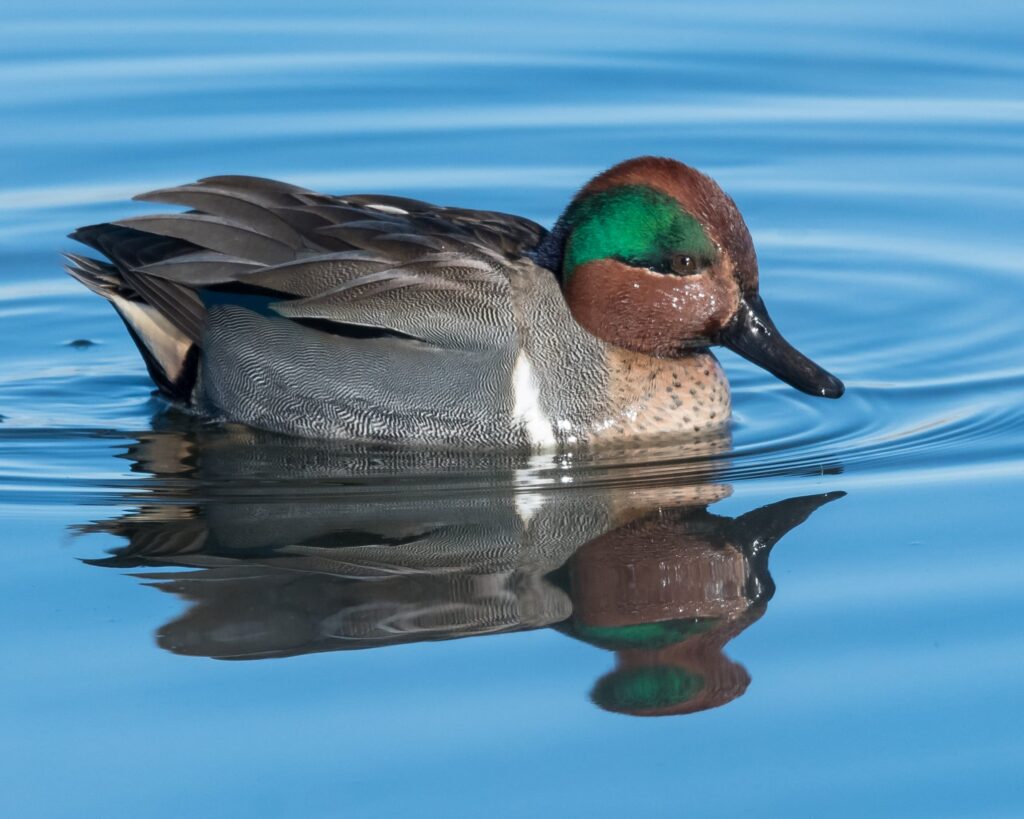Hunters, be careful where you place tree stands — and more in the latest Manitowoc outdoors report
Here’s the latest outdoors news from Manitowoc County and beyond.

A reader of this column brought to my attention that they were walking their property when they found two tree stands.
Not a single person had gone to them to ask permission before placing those stands.
A notice to those who hunt from a tree stand: Going onto someone else’s property, whether just walking or placing a tree stand, is trespassing and can be prosecuted in a court of law.
If you are a person with tree stands on someone else’s property, I would suggest you remove them, or authorities may be called.
Donate antlers to Leader Dogs for the Blind
The past two years, I was collecting deer and elk antlers for Deb Delie, who is a puppy raiser for Leader Dogs for the Blind.
I ran into Deb a few weeks ago and she informed me deer hunters in northeast Wisconsin really responded to those of us who are collecting the antlers.
Deb said she mailed off 300 antlers this past year that will be used by the puppy raisers in the Midwest area.
Deer and elk antlers are used for chew toys for the puppies as they don’t splinter when chewed on.
I agreed to do the collecting of antlers again in our area. She will take anything from spike bucks to large antlers. The larger ones get cut down to the proper size for the puppies.
Also, antlers don’t have to be new, so if you are cleaning out a garage or barn and come across any antlers, please save them for the puppies.
I can be reached at 920-682-3106 or bobschuh@lsol.net if you have antlers to donate.
Thanks to those hunters who supported Leader Dogs for the Blind with antlers in the past.
Big blue cranes:When will the big blue cranes ship to the Pacific Ocean?
Woodland Dunes to host ‘October Star Party’
Woodland Dunes Nature Center and Preserve in Two Rivers will present “October Star Party” at 8 p.m. Oct. 5.
Join astronomers Al and Ben in the Sky Shed to view night sky constellations, the moon and other celestial objects through the big telescope.
You can also take your own telescope if you need help figuring out how to set it up.
The program is held weather and sky conditions permitting. It takes place outside the Nature Center.
Registration is required by the Thursday before the session. To register, email Jess at jessicaj@woodlanddunes.org or call 920-793-4007.
DNR receives proposed revisions to Invasive Species Identification, Classification and Control Rule
Wisconsin Department of Natural Resources has received proposed revisions to Wisconsin’s Invasive Species Identification, Classification and Control Rule (Chapter NR 40 of the Wisconsin Administrative Code) from the Wisconsin Invasive Species Council.
The governor-appointed council advises the DNR and state legislature on invasive species issues, including Chapter NR 40.
To reach this point, the council convened species assessment groups to assess and inform species classifications under the rule, presented its proposed classifications to the public, and requested feedback, reviewed public feedback and voted to finalize its recommendations.
You can view the council’s letter and recommendations to the DNR by visiting the Invasive Species Council webpage.
The council has recommended the DNR move forward on rulemaking while taking its recommendations under advisement.
The DNR’s rulemaking process takes approximately 30 months to complete and has additional opportunities for public input before the rule is updated. More about the DNR’s rulemaking processes is available online.
Fall fun guide:Plan your Manitowoc County fall: Here’s a rundown of all the festivals and parades planned for the last few months of 2024.
To receive updates on this and other invasive species issues, visit the Invasive Species Email Updates webpage to sign up for the DNR’s invasive species email list.
Invasive species are non-native plants and animals that cause great ecological, environmental or economic harm, and some can even affect human health.
Chapter NR 40 was established in 2009 to slow the spread of invasive species. The rule classifies invasive species in Wisconsin as Prohibited or Restricted and regulates the transportation, possession, transfer and introduction of those species.
The rule also establishes “Preventative Measures” to show what actions we can take to slow the spread of invasive species.
That’s it for this week, so have fun in the great outdoors.
You may also like
-
Companies fined for shipping invasive crayfish to Wisconsin & more Manitowoc outdoors news
-
Bob Schuh Outdoor Report for the County
-
Bob Schuh has the latest outdoors news from across Manitowoc County and beyond.
-
Bob Schuh has the latest outdoors news from Manitowoc County and beyond.
-
Scoping The Great Outdoors By Bob Schuh
